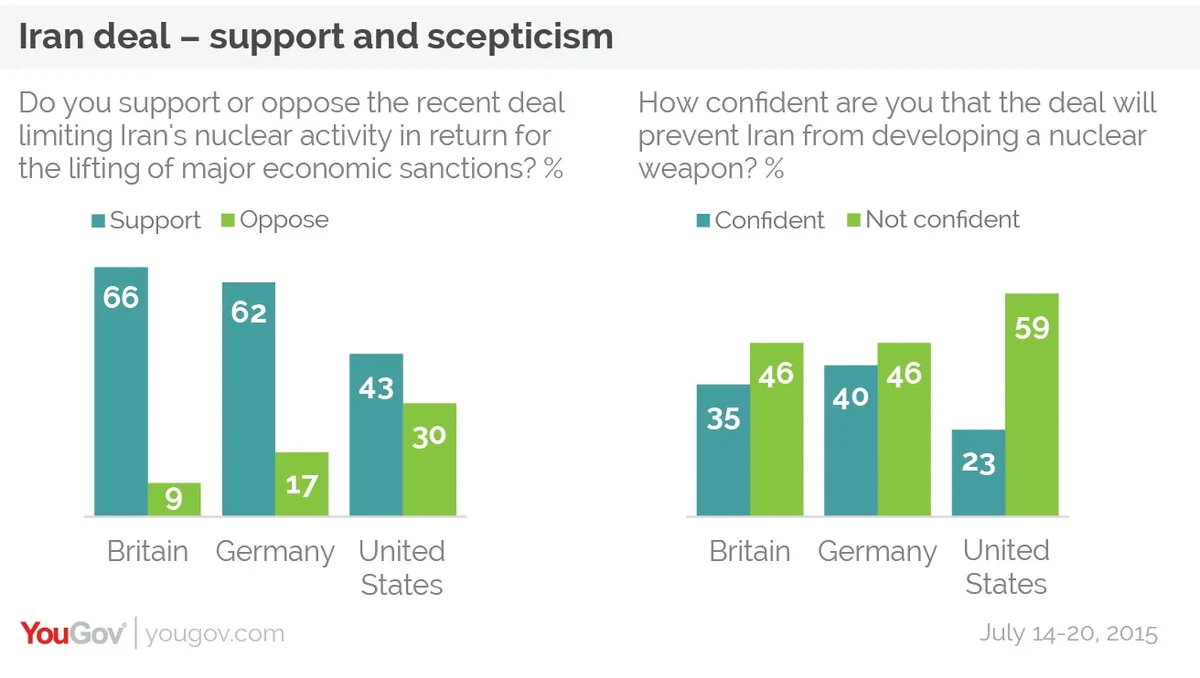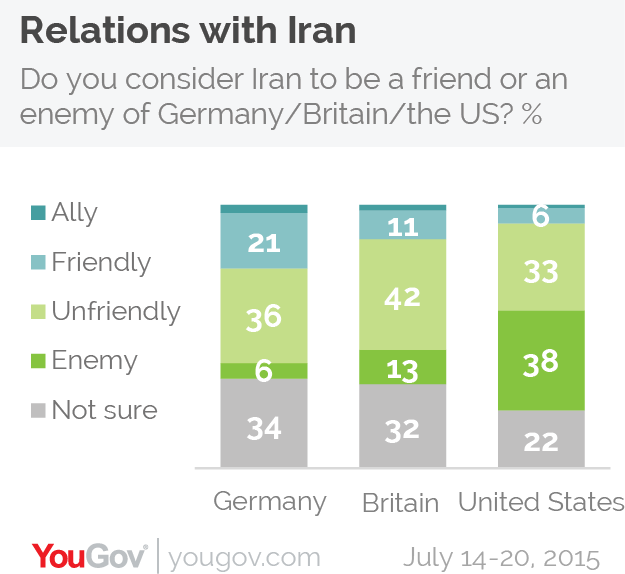Two thirds of British people support an international agreement limiting Iran's nuclear capability – but many, especially in America, are sceptical the deal will work
A historic deal lifting economic santions on Iran in return for limits to its nuclear activity has been unanimously approved by the UN. The deal, reached by six world powers last week, still has to pass through America's Congress – but international approval moves things one step closer to full approval, and the UN's endorsement toughens the reinstatement of sanctions if Iran fails to keep its side of the bargain.
New YouGov polling in half of the countries party to negotiating the deal finds the British and German public strongly in favour, with 66% and 62% in support and 9% and 17% in opposition, respectively. Americans also tend to support the deal, but to a lesser extent (43% support, 30% oppose). In all three countries around a quarter of people are unsure, however.

Despite approval of the agreement in all three countries, each of their populations are sceptical that it will achieve its main aim – to prevent Iran acquiring a nuclear weapon. Americans are the most sceptical (23% are confident it will prevent Iran from developing a nuclear weapon, 59% are not). British people (35% confident, 46% not) and Germans (40% confident, 46% not) are more confident, but still tend to doubt the efficacy of the deal.
Republicans in America, who have criticised the agreement for seeking to manage rather than prevent Iranian nuclear activity and for endangering Israel, oppose the deal by 55-28%.
Iran has agreed to reduce its uranium stockpile by 98% for 15 years, to redesign a controversial reactor so that it cannot produce weapons-grade plutonium and has submitted to "extraordinary and robust monitoring, verification, and inspection". Sanctions costing Iran more than $160bn in oil revenue since 2012 will be lifted, $100bn in assets frozen overseas will be returned and access to international markets will resume. UN arms embargoes will continue for the next few years, however.
Relations
The polling also brings out the greater level of anxiety over Iranian relations in America than in Europe. If Iran were to break the terms of the agreement and begin development of a nuclear weapon 64% of Americans would approve American military action. British people agree to a lesser extent (44% support British military action, 32% oppose), but Germans do not (46% oppose, 37% support). Germans are also the least likely to see their relations with Iran as poor (42%) – the figures for Britain and the US are 55% and 71% respectively.
Americans are almost twice as likely (64%) as British people (38%) and Germans (36%) to see Iran's nuclear program as a serious threat to their country.
The Israeli Prime Minister Benjamin Netanyahu had an altercation with Philip Hammond, the British foreign secretary, at a press conference in Jerusalem last week – criticising the deal for having no requirement that Iran changes its behaviour towards Israel.
PA image












